There are so many distractions and unproductive activities that affect our performance at the workplace, and so many methods to increase focus and work efficiency. If you’re looking for a way to improve your productivity and stay organized, consider using special software to create a productive work environment.
We’ve collected a list of productivity tools for Linux platforms that you probably haven’t heard about. They will help you with:
- blocking out distractions;
- keeping track of how you spend your work time;
- automating manual work;
- reminding of important to-dos;
- organize and structure knowledge;
- and much more.
1. FocusWriter
FocusWriter is a text processor that creates a distraction-free environment for writers. It supports popular text formats and uses a hide-away interface to block out all distractions. You can select any visual and sound theme that works best for your productivity, and focus on your work. FocusWriter also allows you to set daily goals, use timers, alarms, and look into statistics.
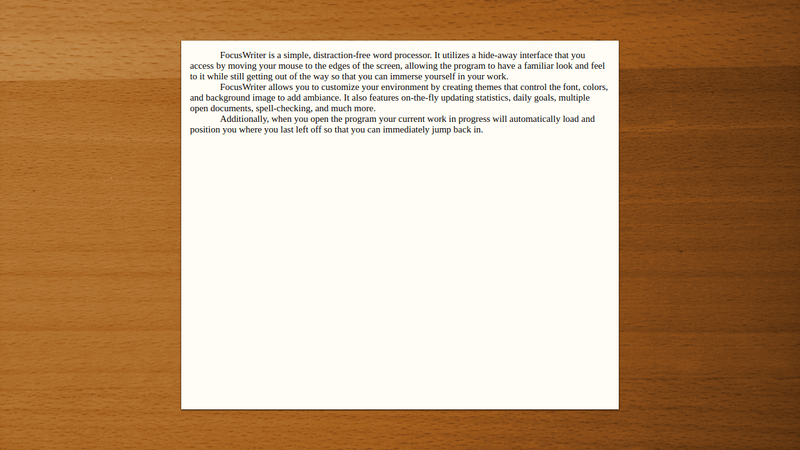
The tool can be installed on various Unix platforms and also provides an option of portable mode. Its source code is also available at the developer’s website.
2. actiTIME
actiTIME is a time-tracking and work management tool for companies of any size and self-employed individuals. Alongside with its cloud-hosted version, a self-hosted edition for Unix systems is available that can be installed on a personal computer or on a company’s internal server.
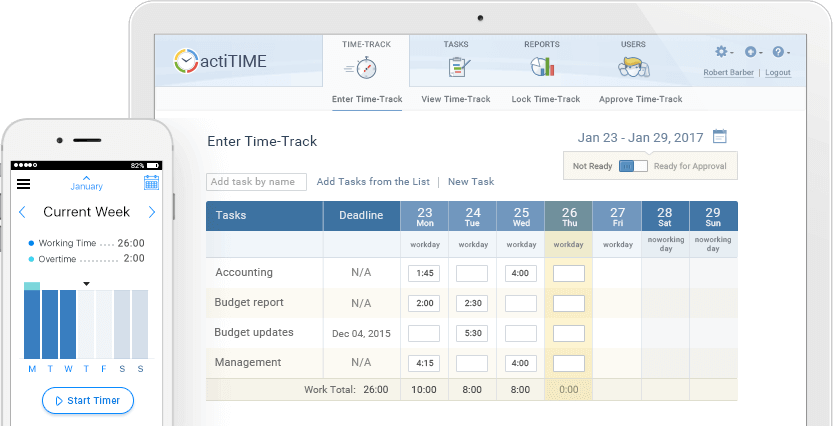
The tool helps get accurate records of work and leave time and run reports based on that data to measure your personal productivity and your team’s performance. It also allows to approve and lock timesheets, calculate billable amounts, and issue invoices. Its work management features include organizing project teams, granting project assignments, and configuring email alerts on upcoming deadlines, worked out time estimates, overrun project budget, and other events.
3. LastPass
Anyone knows the pain of having forgotten a password. Those who prefer not to use the same password for all services, will definitely appreciate LastPass. It works in your browser and helps manage passwords easily and securely – and stop spending time on useless attempts to remember them all. Besides, it helps create secure and easy to read passwords.
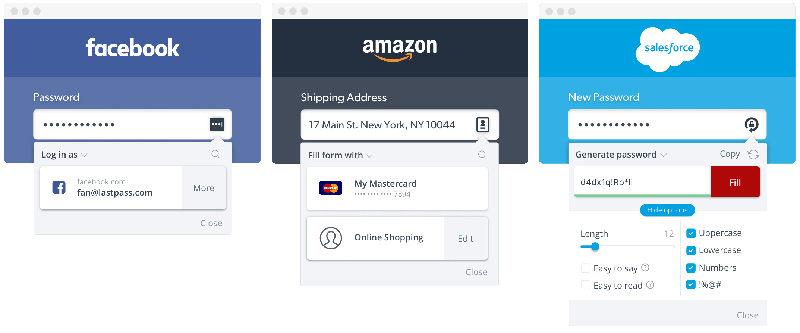
The tool is available for Linux platforms as a universal installer and as an addition to specific web browsers.
4. f.lux
Those who work late at night know the negative effect of the blue screen light on productivity, health and energy. Experts say it’s better not to work at night, but if quitting this is not an option, a special tool that adapts screen light to the environment can help.
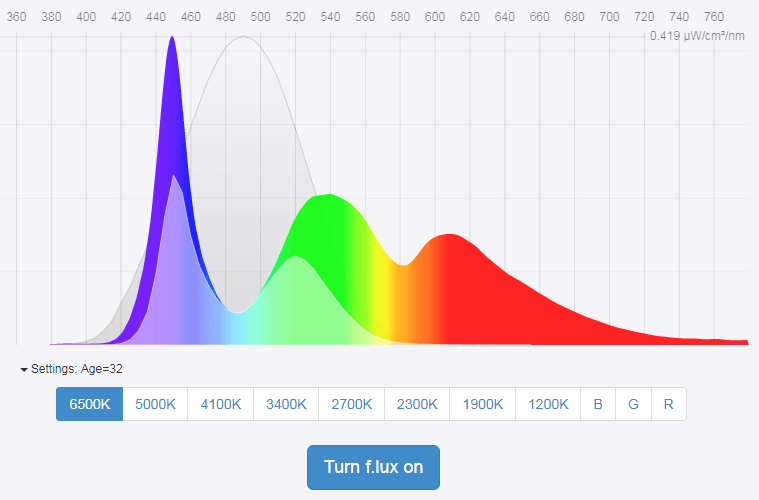
Available for various mobile and desktop platforms, f.lux automatically adjusts the light of your computer or smartphone screen to the lighting. To set it up, you need to choose your location and configure lighting type in the app’s settings. After that, the light from your devices’ screens will dynamically adjust to the environment, decreasing its negative effects.
5. Simplenote
Simplenote is a free tool for keeping notes and sharing them across all your devices. It is available for various desktop platforms and mobile devices. If you’re using Simplenote on several devices, your notes are automatically kept synced and updated on all of them.
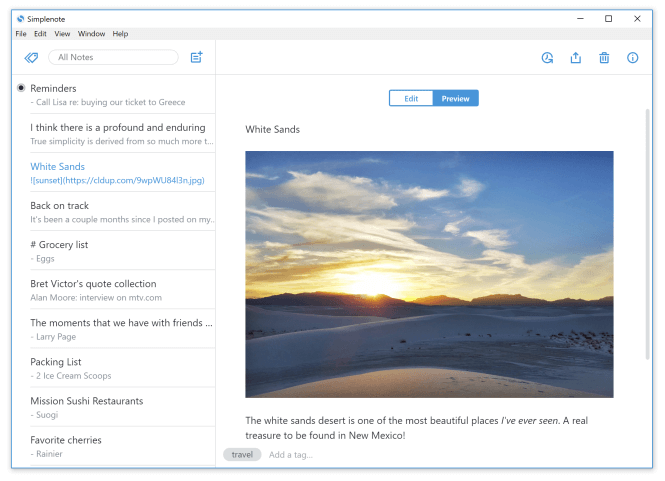
The tool offers collaboration features. You can post instructions, publish your thoughts, or share lists with your friends, coworkers or family. If you’re using Simplenote frequently and keep many notes in it, its tags and quick search will be of help. The app helps you stay productive and organized and never miss an important reminder.
6. Osmo
Osmo is a personal organizer. It includes various modules: calendar, notes, tasks list and reminder, and contacts. It is a lightweight and easy to use tool for managing all important personal information. The app can run both in an open window or in the background mode, and it doesn’t need an Internet connection.
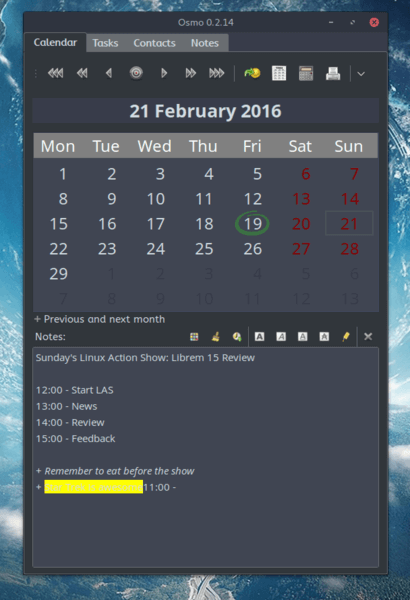
Osmo offers various configuration and formatting options for different types of information you record in it: addresses, birthdays, ideas, events, etc. Its handy search allows to find and access necessary information quickly and easily.
7. FreeMind
FreeMind is a free mind-mapping software for Linux platforms. It helps structure knowledge, brainstorm and develop new ideas, and prioritize your to-dos. The tool allows users to create multi-level structures that visually represent ideas, workflows, or knowledge.
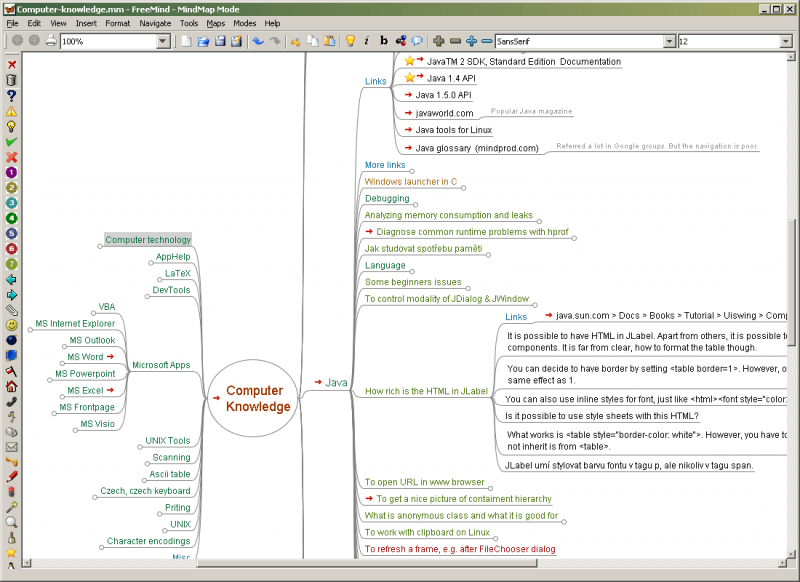
The tool is great for writers, developers, researchers, students and other people who need to collect and structure large amounts of information. To view and process your mind maps in other software, FreeMind supports export of maps to HTML files that can be opened with any web browser.
8. Autokey
Autokey is an automation utility available for various Linux distributions that allows to create and manage collections of scripts and phrases, and assign abbreviations or hotkeys to them. This helps speed up typing large parts of text or automate executing scripts in any program that you’re using on your computer.
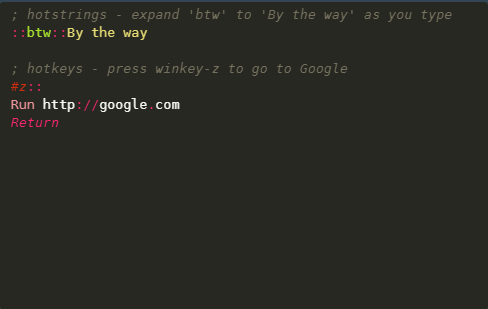
Phrases are stored as plain text and scripts as plain Python files, so you can edit them in any text editor. You can collect them in folders and assign a hotkey or abbreviation to show the contents of the folder as a popup menu. The tool also allows you to exclude some hotkeys or abbreviations from triggering in specific applications. Autokey can help automate literally any task that can be performed with mouse and keyboard.
9. Catfish
Catfish is a file searching tool for Linux platforms. It speeds up your work with files on your machine, saving your time for productive work. The tool handles your search queries using technologies that are already included in your system, and shows results in a graphic interface.
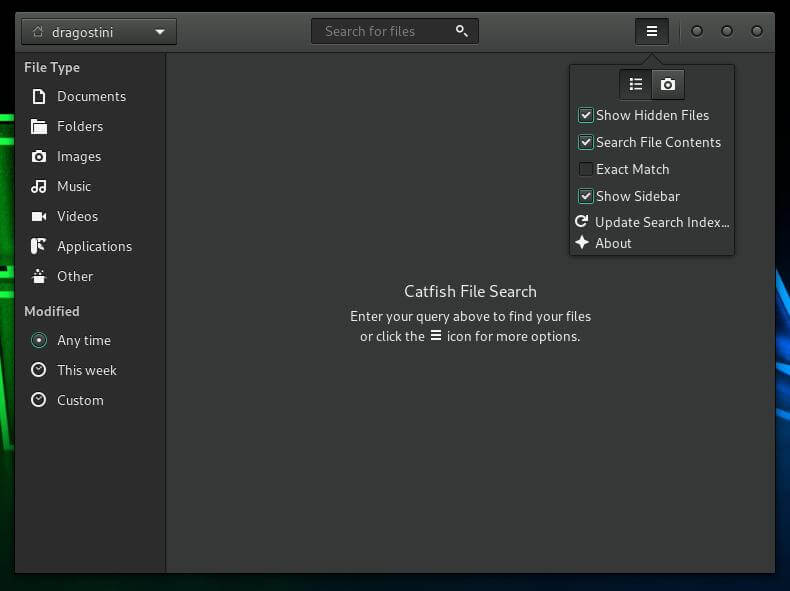
Simple and powerful, the tool offers advanced search options: searching through hidden files, enabling or disabling search through file content, changing views, etc. It is a good option when you don’t feel like opening a terminal and locating a file using a find command.
Hope this was helpful! In this article, we’ve collected productivity tools for Linux that cover the most important aspects of productivity. If we have missed something, let us know using the feedback form below.

Two programs missing in this list: a) Cherrytree by Guiseppe Penone. Cherrytree is one of those programs that replaces a whole mess of other apps/programs due to its versatility. I use it for all my writing/word processing needs – logbook, inventory, poetry, story/article/letter writing, address book/contacts list, recipe book, to do/task lists, project management, notebook, and much, much more. It’s cross platform so I can use it on Windows or Linux without skipping a beat. I have yet to find a more useful, versatile program.
2) Orage Calendar. This is similar to Osmo but much better. It’s compact enough to sit on the desktop (Osmo takes up too much desktop real estate) and has a extensive reminder/ appointment/ event system that stays out of the way. I use various Linux distros and always replace the default calendar apps with Orage.
I prefer the Orage Calendar/Cherrytree Note Organizer combo to Osmo. Orage Calendar sits permanently on my desktop with reminders and notifications. Cherrytree is one of those programmes that replaces a whole mess of other apps/programmes due to its versatility. I use it for all my writing/word processing needs – logbook, inventory, poetry, story/article/letter writing, address book/contacts list, recipe book, to do/task lists, project management, notebook, and much, much more. It’s cross platform so I can use it on Windows or Linux without skipping a beat. I have yet to find a more useful, versitile programme.
ActiTime seems really useful.
For taking notes, and moving parts of text around, Org-mode can be interesting. There are an author of non technical books that uses Org-mode. Even though it is more about todo lists, time keeping and reporting and such. It is an Emacs mode.
I miss Enpass, LastPass is Server-based. Only Enpass save the Vault on your computer. Sure if you want you can share the Vault to any common Cloud Service. And it costs less than LastPass!
Catfish is a good file search tool. Fsearch and ANGRYsearch are also very good and worthy of a mention. Good article. Thanks for the heads up on Osmo, I will give it a spin.
@Michael Tunnelll–I had no problems with links to Autokey, its tutorial, or User’s Group. Wonder what’s going on. You might try again, and please report back. Thanks.
********************
Ms. Philipenko-
Superb article, very well written, and with all suggestions are imminently useful. This type article–particularly when it’s obvious that the author has actually curated the material–is rare these days; you are to are to be commended. Please keep up the very good work.
I’m going to immediately try FocusWriter, Catfish, Osmo, and Autokey. Thanks again.
Dead project doesn’t mean that it isn’t available. It means that the development has stoped.
So Yes, source and wiki etc might be there, but no respons in mail lists etc.
I have no clue about AutoKey status though.
last I checked, AutoKey is dead . . . I think I heard of a fork somewhere but you linked to the dead project in this article.
i guess more on the browser side where we spend most of our distraction time, there are some plugins/extensions that block a list of sites after a certain amount of usage, i personally use Stayfocusd to limit time usage of Facebook and such… also would like to mention techniques like pomodoro would be a plus to the article, and there are good linux apps for this